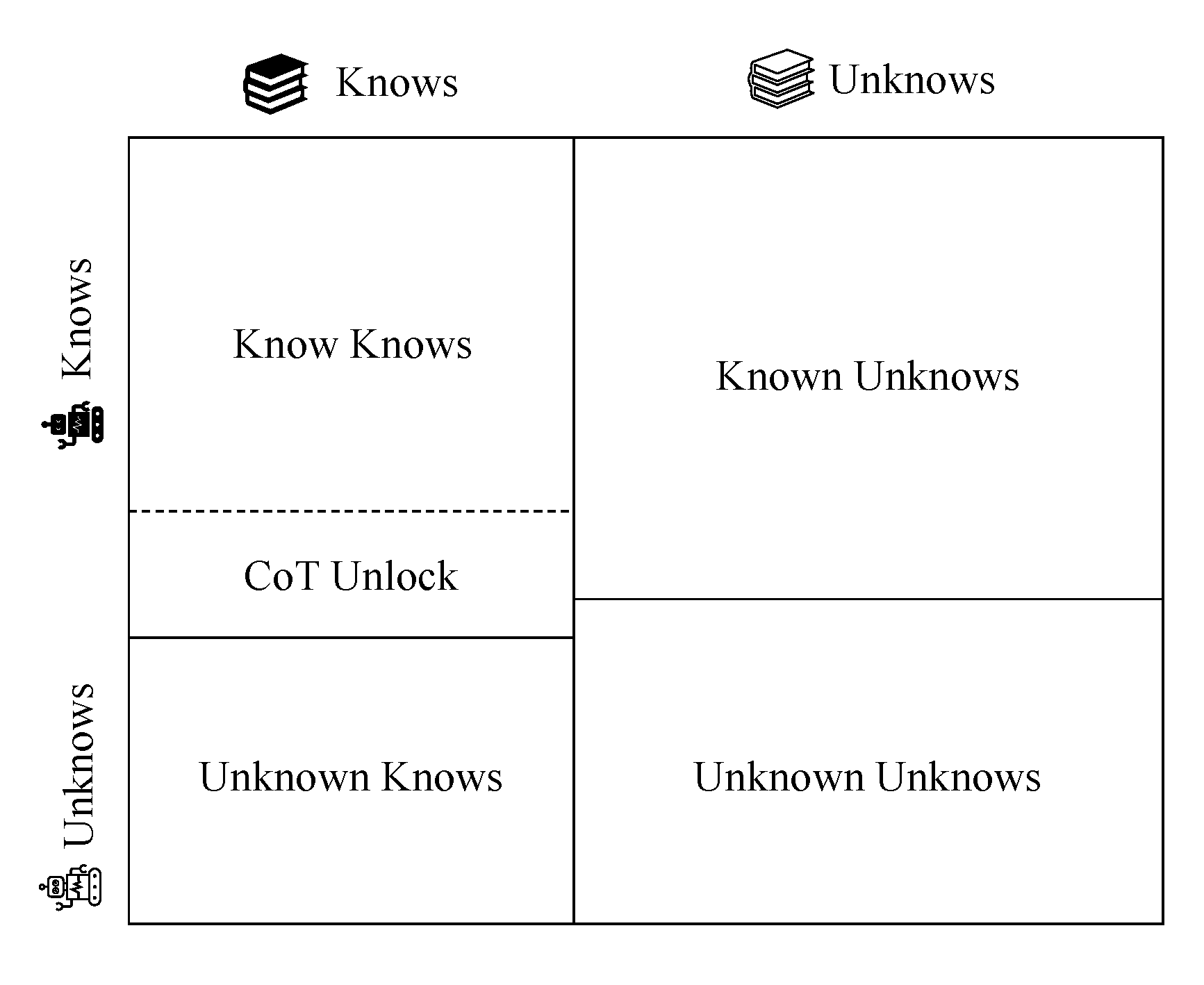Findings of ACL 2023: Do Large Language Models Know What They Don’t Know?
This repository contains the code and data related to the paper "Do Large Language Models Know What They Don’t Know?". In this paper, we explore and analyze the self-knowledge of large language models, and provide a dataset called SelfAware for evaluating the self-knowledge of these models. SelfAware includes 1032 unanswerable questions and 2337 answerable questions. We use the F1 score to evaluate the self-knowledge of large language models, and propose an automated method for extracting uncertainty meanings from the outputs of large language models.

Please make sure you have the following requirements installed:
- openai
- torch
- backoff
- tenacity
- transformers
- sentencepiece
- jsonlines
- tqdm
- matplotlib
- ipdb
- simcse
The data is located in the SelfAware.json file. When using it, please adhere to the CC-BY-SA-4.0 license. Below are some examples of the data:
Answerable questions:
{
"question_id": 3,
"question": "Which breed of dog is bigger, Japanese Terrier or Cane Corso?",
"answer": [
"cane corso"
],
"answerable": true,
"source": "hotpot_train"
}Unanswerable questions:
{
"question_id": 2667,
"question": "Where are all the aliens?",
"answer": null,
"answerable": false,
"source": "SelfAware"
}Each entry consists of a unique question ID, the question text, the answer (which is an array that can contain multiple answers, or null for unanswerable questions), a boolean indicating if the question is answerable or not, and the source from where the question is extracted.
You can replicate our experiments by running the run_model.py script. For instance, here is the command to run the text-davinci-003 model with only the question as input:
python run_model.py --input-form Direct --model-name text-davinci-003And this is the command to run the gpt-3.5-turbo-0301 model with an instruction included in the input:
python run_model.py --input-form Instruction --model-name gpt-3.5-turbo-0301The script primarily includes three input arguments:
- API-Key: This is your OpenAI API key, which is required to run GPT-related experiments.
- input-form: The form of the input data.
- model-name: The name of the model you're testing.
- temperature: The temperature setting when generating text. It controls the randomness of the predictions. (Default 0.7)
Tips:
You can also test more models as long as they're compatible with the generate method from the transformers library.
The evaluation code for SelfAware is located in eval_model.py. Below is an example of evaluating the alpaca-7b model:
python eval_model.py --filename alpaca-7b/Direct_alpaca-7b_T_0.7.jsonlThe evaluation results include Precision, Recall, F1 score, and the accuracy for answerable questions.
If you have any suggestions or questions, feel free to email us at yinzhangyue@126.com. If you encounter any issues while using the code, or if you find any bugs, please open a new issue on GitHub. This is a preliminary work and we are very much open to any constructive feedback that could help us improve. Thank you for your attention!
If you are interested in our work, please use the following citation format when referencing our paper:
@inproceedings{yin-etal-2023-large,
title = "Do Large Language Models Know What They Don{'}t Know?",
author = "Yin, Zhangyue and
Sun, Qiushi and
Guo, Qipeng and
Wu, Jiawen and
Qiu, Xipeng and
Huang, Xuanjing",
editor = "Rogers, Anna and
Boyd-Graber, Jordan and
Okazaki, Naoaki",
booktitle = "Findings of the Association for Computational Linguistics: ACL 2023",
month = jul,
year = "2023",
address = "Toronto, Canada",
publisher = "Association for Computational Linguistics",
url = "https://aclanthology.org/2023.findings-acl.551",
doi = "10.18653/v1/2023.findings-acl.551",
pages = "8653--8665"
}

